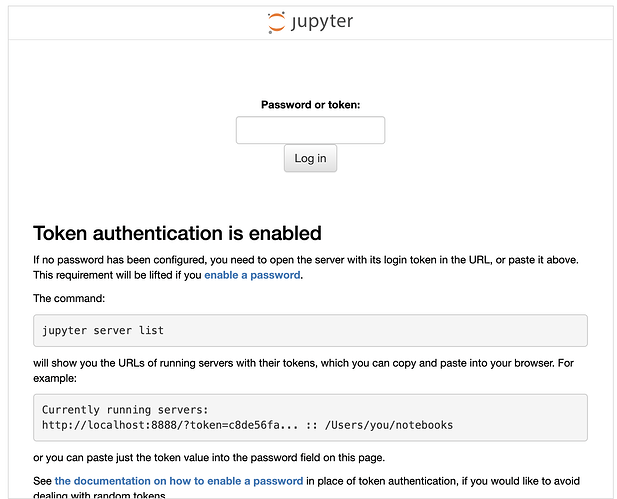Hi Everyone,
I’m looking for some help or pointers on what I think is a configuration that I should be doing to jupyter-server-proxy.
TL;DR can jupyter-server-proxy be made to serve to a different origin?
TL;DR2 is some other jhub auth behaviour causing this and not the proxy as I am assuming?
Some Context
- I have a notebook that uses the pyvista library for 3D visualisation using the trame server backend.
- The pyvista “widget” creates an iframe, pointing back to the notebook server, relying on juptyer-server-proxy to serve the target html page
- I am including this notebook in a MyST markdown site, that is backed by a BinderHub, so I have BinderHub providing a single user server for this myst markdown website – but the myst website runs on a different origin to the hub/single-user server
The Problem
- When I run the code in a myst website, in the iframe appears the well known Jupyter enter token or set password screen
- if in a separate tab I go the the single user server and open lab, I can execute the notebook as expected and the iframe contents appear
- if in a separate tab I then paste the src url from the iframe, the page opens as expected (as I have a cookie set by the previous visit)
To get to this point I have added the following configuration to my local test instance:
jupyterhub_config.py
c.LocalContainerSpawner.cmd = "jupyter-server"
c.LocalContainerSpawner.args = ['--NotebookApp.tornado_settings={"headers":{"Content-Security-Policy": "frame-ancestors *;"}, "Access-Control-Allow-Origin": "*"}']
c.LocalContainerSpawner.cors_allow_origin = "*"
c.LocalContainerSpawner.environment = {
"CN_JUPYTER_SERVER_BASE_URL": "http://192.168.0.119:8000/",
}
c.Spawner.cors_allow_origin = "*"
c.JupyterHub.tornado_settings = {'headers': {'Content-Security-Policy': "frame-ancestors *;", 'Access-Control-Allow-Origin': '*'}}
jupyter_notebook_config.py
c.NotebookApp.allow_origin = "*"
c.NotebookApp.allow_credentials = True
c.NotebookApp.disable_check_xsrf = True
c.NotebookApp.tornado_settings = {
"headers": {"Content-Security-Policy": "frame-ancestors 'self' *"},
}
def allow_all_hosts(host):
print(f"Allowing host: {host}")
return True
c.ServerProxy.host_allowlist = [allow_all_hosts]
I am also ensuring that the iframe src url includes a &token=xxxxx parameter by using GitHub - curvenote/jupyter-server-user-token: Jupyter Server extension that adds a user server token to the environment to get it into the user’s environment.
Note that I have also tested with a plain iframe in the notebook, pointing back to the page served by the proxy with the same problem.
I’d appreciate any thoughts or pointers on how to get this working, or if there is a different approach I could take.
Thanks
Steve

